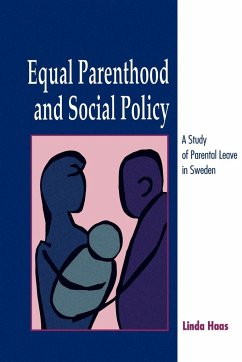Sweden is the only society in the world that has as an official goal the equal participation of fathers and mothers in childcare. Equal Parenthood and Social Policy analyzes the government program which best symbolizes this commitment to equal parenthood-parental leave. With return to one's original job being assured, a Swedish couple has twelve months to divide between them so that one parent can stay home to care for their new offspring. While a few other countries, mostly in Scandinavia, have paid parental leave available to fathers, Sweden's program is the oldest and most generous, as well as the one most closely committed to realizing complete equality between men and women in every sphere of social life. In analyzing this unique social program, Haas describes the social, political, and economic circumstances which led Sweden to take such a revolutionary stance on the issue of shared parenthood. Haas also discusses the extent to which Swedish fathers take advantage of their right to parental leave, barriers to fathers' participation, and fathers' experiences while on leave, along with the effects that leavetaking has on mothers' and fathers' later labor market involvement and participation in childcare. This study of the Swedish program raises important questions about future prospects for equal parenthood in Sweden and other industrial societies, and, more significantly, about the potential effectiveness of social policy for bringing about the end of such a cultural universal as women's responsibility for infants.
Hinweis: Dieser Artikel kann nur an eine deutsche Lieferadresse ausgeliefert werden.
Hinweis: Dieser Artikel kann nur an eine deutsche Lieferadresse ausgeliefert werden.








